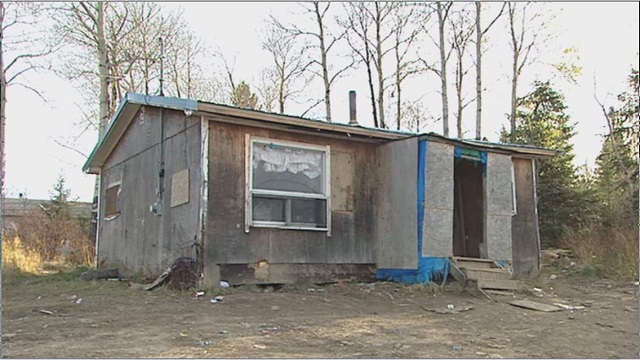Education
Still a few spots left at RDC Summer Camp “experiences”

From RDC: RDC’s Summer Camps open new doors of possibilities for youth and teens
Red Deer College is welcoming youth and teens from across Alberta as they participate in more than 40 exciting and interactive Summer Camps on campus. The camps will be offered from July 2 until August 23, and there are opportunities covering a vast range of interests for participants ranging from 6 to 19 years old.
For the artistically inclined, SummerScapes is a comprehensive visual arts workshop that gives teens a chance to work with professional artists and study the core subjects of drawing, painting, sculpting and ceramics.

From July 8 to 13, film students, video game designers and animation students will tell their stories as they work side-by-side with some of Alberta’s finest actors, filmmakers, programmers and instructors. In Film Camp, murder mystery films will be explored, as students learn how to produce, direct, shoot, write, act and edit their own short movies.
The teen camp, Video Game Design, allows students to collaborate with programmers and artists to create their own video games through writing and design. Students will learn story and character development, production, strategy and level designs, along with scripting, animation and more.
The Amination camp encourages teens to tell stories using Maya, the industry standard for high-end 3D computer animation, effects, and modelling. Students progress through motion and rendering exercises and finish with a collection of animations of their own design.
RDC also has a variety of youth camps, including URockGirl, which uses science and engineering to create fun hands-on projects like henna and mood bracelets. Other activity-based science camps include Junior Imagineers, which gives youth the opportunity to combine science and the power of the mind to learn magic tricks and techniques from a real magician.

Youth inspired to get cooking will appreciate Junior Chefs, where they get to use real industrial kitchens. Campers will learn cooking and baking techniques from Red Seal chefs, developing skills that will last a lifetime.

Those interested in many of the Sports camps, including basketball, conditioning, squash, sport academy and volleyball, will enjoy the world-class facilities in RDC’s vibrant and inclusive Gary W. Harris Canada Games Centre.
Spots are still available in a variety of camps throughout the summer. For a complete list of camps and to register, visit rdc.ab.ca/summercamps or contact the School of Continuing Education at 403.356.4900.
Red Deer
Expelled member of Red Deer Catholic School Board will have judicial reviews heard May 1-3

News release from The Democracy Fund
TDF and James Kitchen Defend School Board Trustee Monique LaGrange
Briefs were filed in Monique LaGrange’s case on the week of April 8, 2024.
RED DEER: The Democracy Fund (TDF) has partnered with lawyer James Kitchen to represent former school board trustee Monique LaGrange as she takes The Board of Trustees of Red Deer Catholic Separate School Division to court for kicking her off the Board because they took offence to one of Ms. LaGrange’s social media posts.
Mr. Kitchen filed two applications for judicial review in December 2023, challenging the Board’s decisions to penalize Mrs. LaGrange and disqualify her from sitting on the Board. Mr. Kitchen has now filed his briefs, which lay out in detail how the Board’s decisions are procedurally unfair and unreasonable and should be overturned by the Court of King’s Bench of Alberta.
The two judicial reviews will be heard virtually by a Red Deer judge over the course of a three-day hearing on May 1-3, 2024, starting at 2:00 PM on Wednesday, May 1. Members of the public are encouraged to attend by accessing this link.
In Alberta, judicial reviews are heard on the basis of a record of documents compiled and submitted to the Court by the decision-maker, which is supposed to include everything presented to the decision-maker at the time the decision was made. In this case, Mrs. LaGrange had submitted to the Board 33 pages of emails and letters from Albertans who supported her. At first, the Board failed to provide these supportive emails and letters to the Court, but that changed when Mr. Kitchen filed an application to compel the Board to do so. Redacted versions of these emails and letters, which are also quoted at length in the briefs, can be viewed here, starting at page 113 of 169.
Mrs. LaGrange was democratically elected to the Board in 2021. Despite this, the Board expelled her because she allegedly failed to comply with sanctions imposed on her by the Board in September 2023 for posting a meme to her Facebook account that some people found offensive. The impugned meme depicted two side-by-side photographs, one of children holding swastika flags and the other of children holding pride progress flags. The meme, which drew much support but also some disapprobation from the community, included a caption stating, “Brainwashing is brainwashing.”
The Board asked Mrs. LaGrange to apologize for the meme, which she declined to do because she believed she had done nothing wrong. In speaking to the Western Standard, Mrs. LaGrange stated, “I was elected to stand up and protect our children, and that is what I am doing.” Among other things, the Board, on September 26, 2023, ordered LaGrange to undergo sensitivity training at her own expense for allegedly breaching their code of conduct by posting the meme and to refrain from making public comments about sexual minorities in her official capacity as a Trustee.
The Board subsequently alleged Mrs. LaGrange had breached some of these sanctions and voted to disqualify Mrs. LaGrange as a trustee.
TDF and lawyer James Kitchen have chosen to defend Mrs. LaGrange to defend the free speech rights of all Canadians, especially in the context of statements made by democratically elected representatives.
To support Mrs. LaGrange, please consider making a tax-deductible donation on this page.
About The Democracy Fund:
Founded in 2021, The Democracy Fund (TDF) is a Canadian charity dedicated to constitutional rights, advancing education, and relieving poverty. TDF promotes constitutional rights through litigation and public education and supports access to justice initiatives for Canadians whose civil liberties have been infringed by government lockdowns and other public policy responses to the pandemic.
Education
Solar eclipse school closures underscore impact of learning loss

From the Fraser Institute
Instead of making every effort to protect instructional time and ensure that schools remain open, students are being sent home for ever more dubious reasons.
Schools are closed out of an “abundance of caution.” No doubt you’ve heard this phrase many times over the last few years. It was commonly used during the pandemic when provincial governments closed schools for months on end—even after it was widely known that COVID-19 posed little risk to most children.
Ontario schools were closed for 135 days during the pandemic, more than any other province. Parents and teachers are still trying to recover from this enormous learning loss. Clearly, this was one situation where an abundance of caution caused more harm than it prevented.
Sadly, it appears that provincial officials and school board administrators haven’t learned from their mistakes. Instead of making every effort to protect instructional time and ensure that schools remain open, students are being sent home for ever more dubious reasons.
For example, school boards across Ontario cancelled classes on April 8, the day of the solar eclipse. Apparently administrators felt there was too great a risk that students might look at the sun during the eclipse and damage their eyes. No doubt more than a few of them glanced at the sun while sitting at home that day. However, there was no need for the school closures to be as total as the eclipse. If they were really that concerned, school officials could have kept students indoors or simply altered the dismissal times.
Initially, the Waterloo Region District School Board (WRDSB) took a common sense approach by stating that schools would remain open and teachers would use the eclipse as a learning opportunity for students. Then, only days before the eclipse, the WRDSB suddenly reversed itself and said their schools would indeed close on April 8, and students would have the opportunity to engage in “asynchronous remote learning” instead.
This decision sent the unfortunate message that WRDSB trustees are incapable of standing up to pressure from people who think that schools must close at the slightest sign of real or presumed danger. As for the notion that remote learning was an adequate substitute, our experience during the pandemic showed that for most parents and students, remote learning was thin gruel indeed.
As a further sign of how far paranoia has crept into the education system, some teacher unions demanded they too should be able to work from home during the eclipse. For example, Jeff Sorensen, president of the Hamilton local teacher union, said, “If it’s not safe for children [to be at school], then it’s not safe for adults.”
The union representing Toronto’s Catholic teachers made a similar request. In a memo to its members, local union president Deborah Karam said the union was “intensifying our efforts” to ensure that teachers be allowed to complete their professional development activities at home that day. Surprisingly, no union leader has yet explained why teachers would be less likely to look at the sun while at home than at school.
Of course, school boards must focus on education while also looking out for the wellbeing of students. But there’s more to student wellbeing than simply shielding them from all perceived risks. Extended school closures cause considerable harm to students because they lead to significant learning loss.
By normalizing the practise of closing schools at the slightest sign of danger, real or perceived, we risk raising a generation of young people who lack the ability to do a proper risk assessment. Life itself comes with risk and if we all took the same approach to driving a car that school boards take to school closures, would never set foot in a vehicle again.
Ontario students had a once-in-a-lifetime opportunity to experience a solar eclipse in an educational environment, guided by their teachers. While some parents no doubt taught their children about the eclipse, many others had to be at work.
By closing schools out of an “abundance of caution,” school boards sent the message that school is not a place where unique educational events can be experienced together. Students should be in school during events such as the eclipse, not sitting at home.
If we’re going to exercise an abundance of caution, let’s be a lot more cautious about the risks of closing schools at the drop of a hat.
Author:
-

 COVID-192 hours ago
COVID-192 hours agoCDC Quietly Admits to Covid Policy Failures
-

 COVID-195 hours ago
COVID-195 hours agoJapanese study shows disturbing increase in cancer related deaths during the Covid pandemic
-

 Great Reset12 mins ago
Great Reset12 mins agoClimate expert warns against extreme ‘weather porn’ from alarmists pushing ‘draconian’ policies
-

 Alberta2 days ago
Alberta2 days agoDanielle Smith warns arsonists who start wildfires in Alberta that they will be held accountable
-

 Freedom Convoy2 days ago
Freedom Convoy2 days agoTrudeau’s use of Emergencies Act has cost taxpayers $73 million thus far
-

 Agriculture2 days ago
Agriculture2 days agoBill C-282, now in the Senate, risks holding back other economic sectors and further burdening consumers
-

 Frontier Centre for Public Policy2 days ago
Frontier Centre for Public Policy2 days agoThe Smallwood solution
-

 Bruce Dowbiggin1 day ago
Bruce Dowbiggin1 day agoWhy Are Canadian Mayors So Far Left And Out Of Touch?





